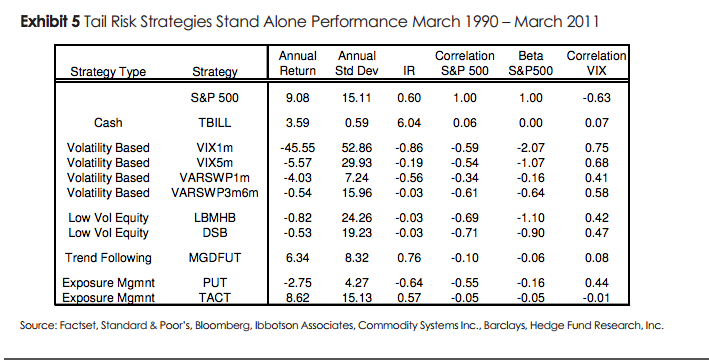Why Don t Asset Management Companies Hedge Their Biggest Risk Meb Faber Research Stock Market
Post on: 12 Июнь, 2015 No Comment

Why Dont Asset Management Companies Hedge Their Biggest Risk?
I had a great time this week catching up with old and new friends at the annual ETF conference in Florida. I think Ive been to just about every one of the eight or so conferences they have had, and it has been interesting to watch the growth from a small venue to about 2,000 people. We are certainly in boom times for the ETF industry I think about four firms have been purchased in the past year and there was even a giant 30 foot ski machine in the middle of the booth room another sign of a seven year bull market as well. (PWC has a new report detailing they expect the ETF space to hit $5T by 2020.)
I was thinking about our booming industry while dipping my toes into the Atlantic, and it reminded me of an old question (and idea) from a blog post way back in 2009 called A Quant Approach to Private Equity . Ironically, you can also read my thoughts on the roboadvisory space six years ago when Wealthfront was still a trading game on Facebook called kaChing.
I posed this question in a blog post, and will quote from it below:
I always wondered why big investors of private equity (like the endowments and pension funds) don’t hedge their portfolio at all? If they assume that they are top quartile, which they have to assume becuase otherwise they should be buying SPY and QQQQ, then they are assuming they’re generating alpha returns. So why not hedge out some of that risk through a static, or better, dynamic hedge? Hedging against long bear markets is a great idea because not only are their holdings going down in value, but their exits disappear. Anyways, ping me if anyone does this I’d like to chat with them. Is there such a thing as a market neutral private equity investor?
We talk a lot about private equity in the book, and a lot about why using the ETFs (ETNs) in the US doesn’t make any sense. Anyways, below is the 10 month SMA on the not-recommended PE ETF. Looks like you would have sold somewhere in the 20’s and bought back somewhere around 8. Not too shabby.
So while my old post focused on the end investor for private equity (say CALPERs or the endowment funds), this one is going to focus on the actual operating companies themselves.
So follow my thinking for a minute. Airlines hedge their biggest risk (the cost of fuel), as do food companies (commodity prices, etc). A recent book titled The Secret Club That Runs the World: Inside the Fraternity of Commodity Traders , highlighted some of these companies and hedging programs.

So, what is the biggest risk to an asset management firm (or PE firm too), especially one that is highly exposed to long only holdings in stocks? The biggest risk is stock losses, particularly a long bear market. Assume a nice fat 50% bear market in stocks that results in the asset management company losing 50% of revenues due to fees declining, but also potentially people selling at the bottom etc.
So why dont large asset managers hedge not their portfolios, but their business risk? This could be done simply by a) buying puts or other long-term LEAP style out of the money options on a consistent basis or b) doing the same on a trendfollowing basis? This would be an insurance style cost in good times, but would help to smooth revenue and ensure the firm survives in a challenging environment the same way hedging fuel ensures Virgin or Southwest could stay in business if oil did goto 150 (or, err, 60).
This situation is particularly timely and personal for me as my firm, while small and growing fast, is mostly exposed to long assets currently (which for a tactical/macro guy like me makes me squirm!) This seems like a much more anti-fragile way to run your company
Anyone ever heard of a Legg Mason, Fido, or other such firms hedging their company-wide revenue stream in the financial markets?














